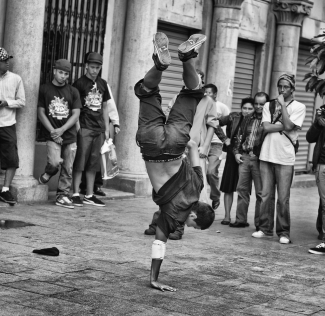
via Flickr
Since its infancy, Hip Hop has captured the angst, power, and frustration of young Black people living in poor urban communities from the ‘60s through ‘80s.
Black people and Puerto Ricans rapped about their everyday lives in neighborhoods like the Bronx. Latino rappers Mellow Man Ace, Cypress Hill, Fat Joe, and Kid Frost have all contributed to the success of Hip-Hop.
There’s a saying, “en Cuba, no hay racismo” or “in Cuba, there’s no racism.” Many Latin American countries don’t talk about race or racism publicly, even though racism is as clear as day.
But Hip Hop provides young people with African ancestry power and pride in their Blackness, with lyrics about Black militancy and experiences of racism that speak to their own lives.
Producers mix the Hip Hop elements they know and love, like Cuban rapper Alexey who calls upon the Hip Hop music he heard broadcast from Miami as a child and mixes it with Afro-Cuban and other musical elements from the Diaspora.
Hip Hop is a global phenomenon that originated in this country but has touched the lives of Black people all over the world, including our Latino diasporic family.